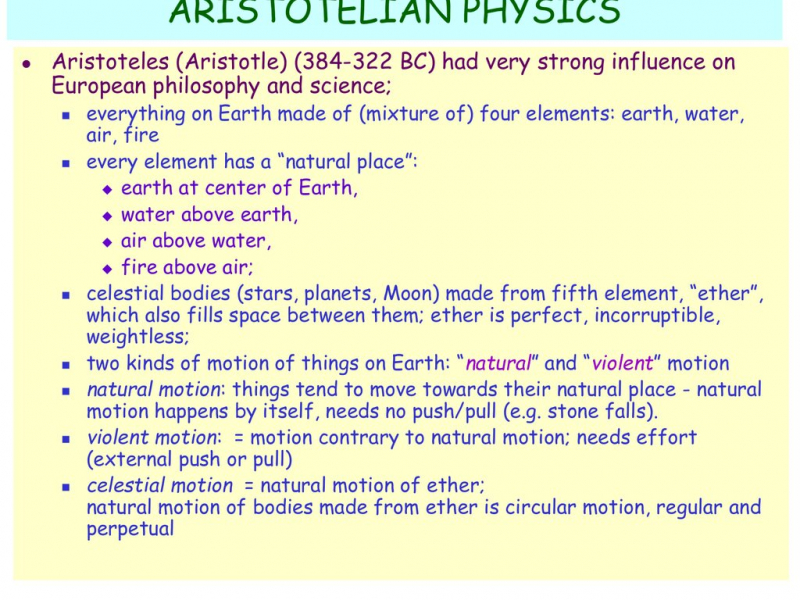Aristotelian Physics
Physics was primarily the study of nature, which was fundamentally similar to change, even for Aristotelian physics. In his book, Physics, he complains about both the character of changes and changes in the natural world. A duality of topics and investigations are covered in Physics, with one book focusing on nature (book 1-4) and the other on motion (book 5-8). Cause, action, time, and location have all been defined, explained, and debated by him. Aristotelian physics was founded on the idea that everything in the universe assumed a state of rest. He distinguished between the earthly realm and the heavenly region by designating them as terrestrial and celestial, respectively.
He also mentioned the four essential components of earth, water, fire, and air. The ether, an unbounded and immutable substance, was the essential component of the celestial or heavenly bodies. Additionally, he contended that heavier items fall to the ground more slowly than lighter ones, suggesting that an object's mass affects how quickly it moves. He was the first physicist, despite being scorned by the brightest professors. His physics studies appear to have been greatly impacted by existing concepts held by both modern and ancient Greek scholars. For instance, the world setup he portrayed in his treatises On Generation and Corruption and On the Heavens bore numerous parallels with claims made by several pre-Socratic period scholars. However, for more than a millennium, his theories were still relevant.














